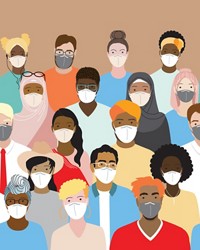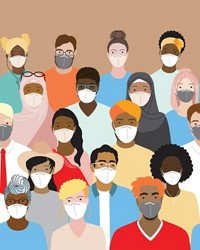Advertisement
Grab your lab coat. Let's get started
Welcome!
Welcome!
Create an account below to get 6 C&EN articles per month, receive newsletters and more - all free.
It seems this is your first time logging in online. Please enter the following information to continue.
As an ACS member you automatically get access to this site. All we need is few more details to create your reading experience.
Not you? Sign in with a different account.
Not you? Sign in with a different account.
ERROR 1
ERROR 1
ERROR 2
ERROR 2
ERROR 2
ERROR 2
ERROR 2
Password and Confirm password must match.
If you have an ACS member number, please enter it here so we can link this account to your membership. (optional)
ERROR 2
ACS values your privacy. By submitting your information, you are gaining access to C&EN and subscribing to our weekly newsletter. We use the information you provide to make your reading experience better, and we will never sell your data to third party members.
Education
Generation C: Caring for students during the coronavirus pandemic
by Bibiana Campos Seijo
May 10, 2020
| A version of this story appeared in
Volume 98, Issue 18
C&EN columnist and Emory University associate professor Jen Heemstra recently asked a pointed question on Twitter about conducting final exams amid the pandemic: “As we approach finals in this remote format, it’s important to recognize the realities our students are living. Some will be taking finals from inside of a car because that is the only quiet space they have access to. Do we really need closed-book, timed tests to assess learning?”
Many agreed and offered that while many professors are worried about the rigor of their exams in a virtual learning environment, they are assuming students’ resources have not changed since the pandemic started. Twitter user Faxe MacAran added that some instructors are adjusting programs according to how the pandemic has affected them, “without really thinking about how this has impacted the student.”
Colleges have shifted to online-learning best practices, but this shift does not account for the multilayered disruption students face. Besides adapting to virtual learning, many have had to move back with their parents or been laid off from jobs that help them pay for their studies. Many may also be struggling with childcare—more than one in five undergraduates in the US is a parent, according to the Institute for Women’s Policy Research.
If your thoughts are still caught on the idea that some students may be taking finals from their cars, read on. Greg Gabriel added to the thread, saying, “I have actually one student that travels to their country’s embassy to use the internet every Saturday and Tuesday. I have another student that drives to McDonald’s to use their wifi. The dedication of these students really motivates me to do better. How can it not.”
C&EN has made this story and all of its coverage of the coronavirus epidemic freely available during the outbreak to keep the public informed. To support our journalism, become a member of ACS or sign up for C&EN's weekly newsletter.
It is inspiring to hear about young folks willing to go to these lengths. They shouldn’t have to. Still, final exams have gone ahead across the country. I wonder what will come out of all this—whether we’ll see any impact on the work readiness of this cohort and whether disciplines that have traditionally required in-person participation because of lab classes will suffer now or in the near future.
It also raises the question, What other aspects of students’ lives will suffer? Jillian Buriak, a professor of chemistry at the University of Alberta, tweeted about the variable quality of teaching during this crisis and also the effect social distancing will have on students’ morale and motivation. “Expecting 18-year olds to be able to handle a demanding academic schedule with mediocre zoom lectures, in the basement of their parent’s house, is going to lead to widespread dropping out,” she predicted.
When the pandemic began, universities and education authorities rushed to provide what was meant to be a temporary solution. The problem is that education is not just about receiving or gathering knowledge. It is a highly social process, and one of its most important aspects is building relationships with peers and mentors. The pandemic has made this relationship building more difficult.
So what’s in store for Generation C? This is a term that Atlantic contributor Ed Yong coined to refer to babies born during the COVID-19 outbreak and that Amanda Mull, also from the Atlantic, extends to include students, postgraduates, and young job seekers affected by the novel coronavirus. Any estimate of how many may drop out of college will be only a wild guess. The worse news is that we face the deepest recession in more than 10 years, and the job market is also suffering. Decent positions will be hard to come by. As a community, we need to discuss the fact that underprivileged and underrepresented minorities may be more severely affected than others, potentially wiping away years of progress in the diversity and inclusion front.
I fear for the mental health of Generation C. They are the future of our science, and there is no way of knowing how they’ll come out of this crisis.
Views expressed on this page are those of the author and not necessarily those of ACS.




Join the conversation
Contact the reporter
Submit a Letter to the Editor for publication
Engage with us on Twitter